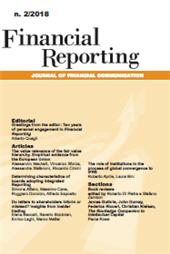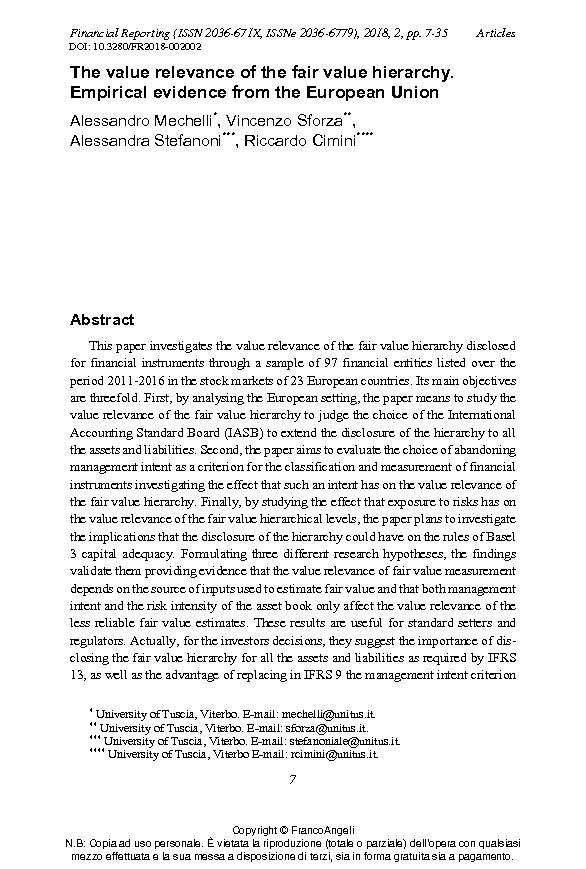The value relevance of the fair value hierarchy : empirical evidence from the European Union
7-35 p.
This paper investigates the value relevance of the fair value hierarchy disclosed for financial instruments through a sample of 97 financial entities listed over the period 2011-2016 in the stock markets of 23 European countries. Its main objectives are threefold. First, by analysing the European setting, the paper means to study the value relevance of the fair value hierarchy to judge the choice of the International Accounting Standard Board (IASB) to extend the disclosure of the hierarchy to all the assets and liabilities. Second, the paper aims to evaluate the choice of abandoning management intent as a criterion for the classification and measurement of financial instruments investigating the effect that such an intent has on the value relevance of the fair value hierarchy.
Finally, by studying the effect that exposure to risks has on the value relevance of the fair value hierarchical levels, the paper plans to investigate the implications that the disclosure of the hierarchy could have on the rules of Basel 3 capital adequacy. Formulating three different research hypotheses, the findings validate them providing evidence that the value relevance of fair value measurement depends on the source of inputs used to estimate fair value and that both management intent and the risk intensity of the asset book only affect the value relevance of the less reliable fair value estimates. These results are useful for standard setters and regulators. Actually, for the investors decisions, they suggest the importance of disclosing the fair value hierarchy for all the assets and liabilities as required by IFRS 13, as well as the advantage of replacing in IFRS 9 the management intent criterion with the business model test and the characteristics
of the instruments for the classification and measurement of financial assets. For the future, the findings suggest the opportunity to introduce filters within the common equity tier 1 for the less reliable fair value estimates. This paper's current and future implications for standard setters and regulators are to avoid earnings management and capital management behaviour possibly affecting the quality of financial reporting. [Publishers' text].
-
Articles from the same issue (available individually)
-
Information
ISSN: 2036-6779
DISCIPLINES
KEYWORDS
- Value relevance, fair value hierarchy, IFRS 13, financial entities



